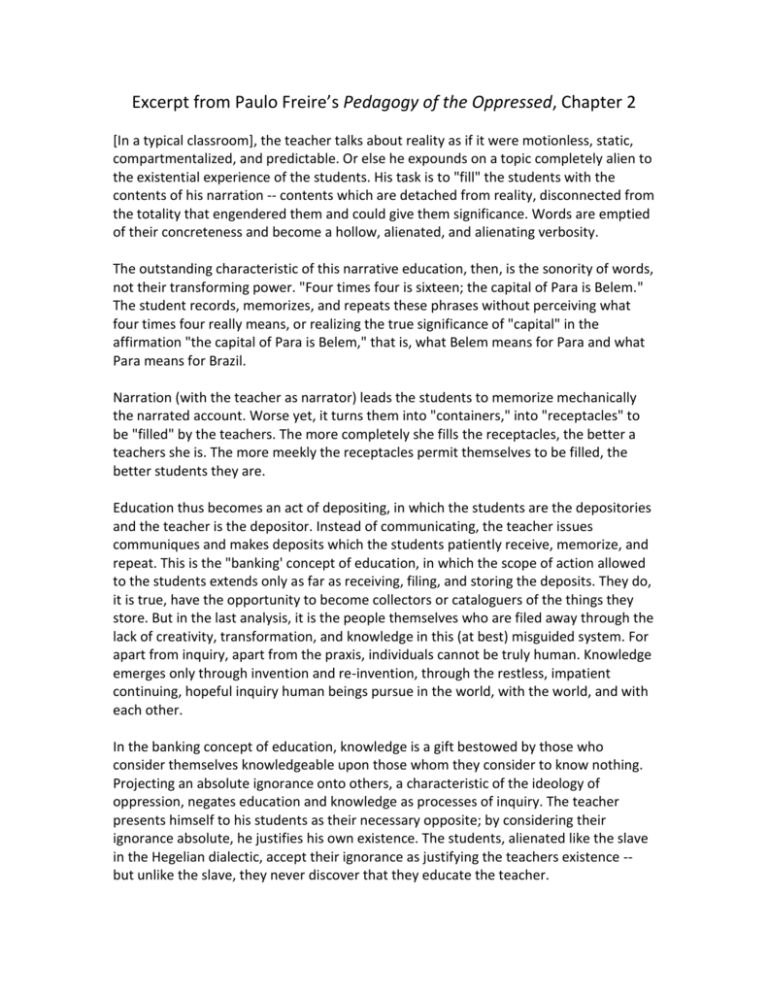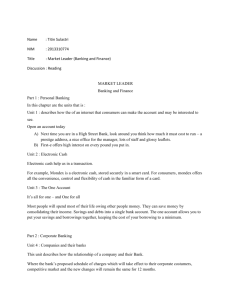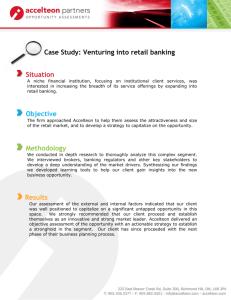Excerpt from Paulo Freire's Pedagogy of the Oppressed, Chapter 2
advertisement

Excerpt from Paulo Freire’s Pedagogy of the Oppressed, Chapter 2 [In a typical classroom], the teacher talks about reality as if it were motionless, static, compartmentalized, and predictable. Or else he expounds on a topic completely alien to the existential experience of the students. His task is to "fill" the students with the contents of his narration -- contents which are detached from reality, disconnected from the totality that engendered them and could give them significance. Words are emptied of their concreteness and become a hollow, alienated, and alienating verbosity. The outstanding characteristic of this narrative education, then, is the sonority of words, not their transforming power. "Four times four is sixteen; the capital of Para is Belem." The student records, memorizes, and repeats these phrases without perceiving what four times four really means, or realizing the true significance of "capital" in the affirmation "the capital of Para is Belem," that is, what Belem means for Para and what Para means for Brazil. Narration (with the teacher as narrator) leads the students to memorize mechanically the narrated account. Worse yet, it turns them into "containers," into "receptacles" to be "filled" by the teachers. The more completely she fills the receptacles, the better a teachers she is. The more meekly the receptacles permit themselves to be filled, the better students they are. Education thus becomes an act of depositing, in which the students are the depositories and the teacher is the depositor. Instead of communicating, the teacher issues communiques and makes deposits which the students patiently receive, memorize, and repeat. This is the "banking' concept of education, in which the scope of action allowed to the students extends only as far as receiving, filing, and storing the deposits. They do, it is true, have the opportunity to become collectors or cataloguers of the things they store. But in the last analysis, it is the people themselves who are filed away through the lack of creativity, transformation, and knowledge in this (at best) misguided system. For apart from inquiry, apart from the praxis, individuals cannot be truly human. Knowledge emerges only through invention and re-invention, through the restless, impatient continuing, hopeful inquiry human beings pursue in the world, with the world, and with each other. In the banking concept of education, knowledge is a gift bestowed by those who consider themselves knowledgeable upon those whom they consider to know nothing. Projecting an absolute ignorance onto others, a characteristic of the ideology of oppression, negates education and knowledge as processes of inquiry. The teacher presents himself to his students as their necessary opposite; by considering their ignorance absolute, he justifies his own existence. The students, alienated like the slave in the Hegelian dialectic, accept their ignorance as justifying the teachers existence -but unlike the slave, they never discover that they educate the teacher. The raison d'etre of libertarian education, on the other hand, lies in its drive towards reconciliation. Education must begin with the solution of the teacher-student contradiction, by reconciling the poles of the contradiction so that both are simultaneously teachers and students. This solution is not (nor can it be) found in the banking concept. On the contrary, banking education maintains and even stimulates the contradiction through the following attitudes and practices, which mirror oppressive society as a whole: the teacher teaches and the students are taught; the teacher knows everything and the students know nothing; the teacher thinks and the students are thought about; the teacher talks and the students listen -- meekly; the teacher disciplines and the students are disciplined; the teacher chooses and enforces his choice, and the students comply; the teacher acts and the students have the illusion of acting through the action of the teacher; the teacher chooses the program content, and the students (who were not consulted) adapt to it; the teacher confuses the authority of knowledge with his or her own professional authority, which she and he sets in opposition to the freedom of the students; the teacher is the Subject of the learning process, while the pupils are mere objects. … [Instead of ‘banking education,’ we should strive for a truly empowering form of education, ‘problem-posing education’]. Through dialogue, the teacher-of-the-students and the students-of-the-teacher cease to exist and a new term emerges: teacherstudent with students-teachers. The teacher is no longer merely the-one-who-teaches, but one who is himself taught in dialogue with the students, who in turn while being taught also teach. They become jointly responsible for a process in which all grow. In this process, arguments based on "authority" are no longer valid; in order to function authority must be on the side of freedom, not against it. Here, no one teaches another, nor is anyone self-taught. People teach each other. …Whereas banking education anesthetizes and inhibits creative power, problem-posing education involves a constant unveiling of reality. Students, as they are increasingly posed with problems relating to themselves in the world and with the world, will feel increasingly challenged and obliged to respond to that challenge. Their response to the challenge evokes new challenges, followed by new understandings; and gradually the students come to regard themselves as committed.










